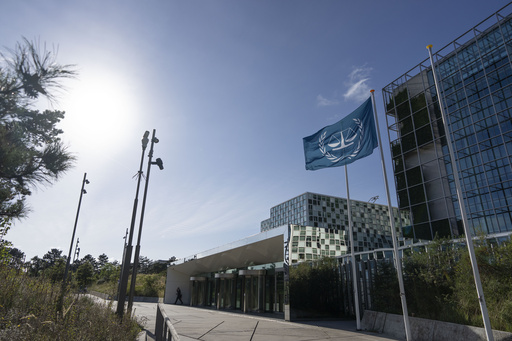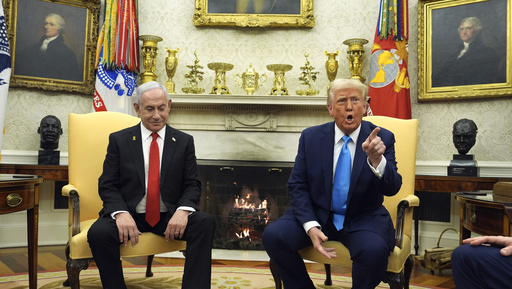President Donald Trump will sign an executive order Thursday sanctioning the International Criminal Court (ICC), accusing it of unfairly targeting the U.S. and Israel.
The order imposes financial sanctions and visa restrictions on ICC officials and their families involved in investigations against American citizens or allies.
ICC warrants for Netanyahu spark U.S. backlash
The move follows the ICC’s controversial decision last November to issue arrest warrants for Israeli Prime Minister Benjamin Netanyahu, former Defense Minister Yoav Gallant, and Hamas leaders. The court accused Netanyahu and Gallant of using “starvation as a method of warfare” by restricting humanitarian aid in Gaza—charges Israel denounced as false and antisemitic.

The timing of the executive order aligns with Netanyahu’s visit to Washington, where he met with Trump in the Oval Office on Tuesday.
Trump rejects ICC’s authority over U.S. and Israel
Trump has long opposed the ICC, arguing it has “no jurisdiction, no legitimacy, and no authority” over the U.S. or its allies. Neither the U.S. nor Israel are signatories to the Rome Statute, which established the ICC.
“The ICC was designed to be a court of last resort,” the order’s fact sheet states. “Both the United States and Israel maintain robust judiciary systems and should never be subject to ICC jurisdiction.”
Congress split over ICC sanctions
Earlier this year, the House passed a bill to sanction the ICC, but it stalled in the Senate after Democratic opposition. While the ICC lacks police enforcement, signatory nations are expected to honor its arrest warrants—though most governments recognize legal immunity for heads of state.
Trump’s order escalates the U.S. stance against the ICC, reinforcing his administration’s rejection of international legal oversight.




